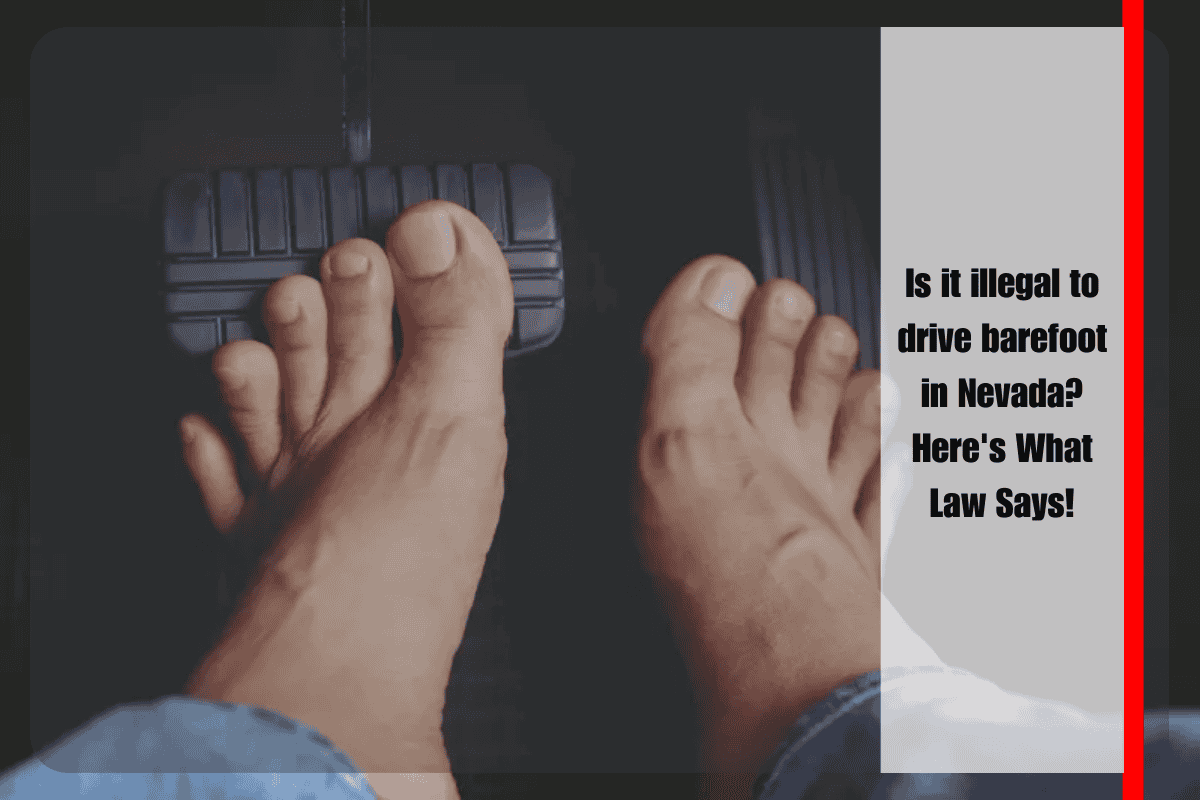Driving barefoot in Nevada is not illegal. There is a prevalent misconception that operating a vehicle without shoes might violate state laws, but Nevada does not have any statutes that expressly prohibit driving barefoot. In fact, the practice is technically legal throughout the state and, more broadly, across the United States. This means a driver who chooses to remove their shoes for comfort—perhaps due to Nevada’s heat—is entirely within their legal rights to do so while driving a passenger vehicle.
However, legality is not the same as safety. Law enforcement agencies and driving schools frequently advise against driving barefoot due to possible safety hazards. Bare feet may provide less grip, increasing the risk of your foot slipping off the pedals, especially in emergency situations. Moreover, going shoeless exposes you to the potential for foot injuries in the event of a collision. Although these are noteworthy safety concerns, Nevada law places the onus of safe vehicle operation on the driver regardless of footwear, so long as they are not violating other traffic statutes or local ordinances.
If driving barefoot was to contribute to an accident, the implications could shift. In Nevada, if police or insurance investigators determine that the lack of footwear was a factor in the cause or outcome of an accident, the driver might be found negligent or even charged with reckless driving. This is not a direct consequence of being barefoot, but rather the result of failing to maintain safe control of the vehicle, as is required by law. In practical terms, driving barefoot doesn’t result in traffic citations by itself, but failing to operate your vehicle safely can lead to legal or financial repercussions.
It’s also important to note that local ordinances, although rare, could theoretically provide stricter guidelines than the state. Still, such regulations are not common and would need to be checked transparently prior to driving. Nevada’s approach reflects broader U.S. traffic law trends—no state in the country bans barefoot driving outright for passenger cars, but some do have specific requirements for motorcyclists. In Nevada, there are no such motorcycle footwear requirements, though certain other states may regulate this more closely.
The wider consensus is that the myth of it being “illegal” likely arose from general recommendations against the practice coupled with insurance and liability risks. When it comes to vehicle accidents, a barefoot driver deemed to have sacrificed safety could face higher insurance premiums or denial of claims if determined to be negligent. Nonetheless, for regular legal proceedings, a Nevada driver will not be penalized solely because they chose to drive without shoes.
All in all, driving barefoot in Nevada is a personal choice and not a criminal one. The most important factor is your ability to stay in control of the vehicle at all times. While you are allowed to drive without shoes, make sure your decision doesn’t impair your driving capability. Safety, caution, and comfort should guide your choices, as the law itself will hold you responsible for the safe operation of your vehicle, not for the type of footwear—or lack thereof—you happen to be wearing.
Sources
[1] https://courtroomproven.com/blog/is-it-legal-to-drive-barefoot-in-nevada/
[2] https://www.askadamskutner.com/auto-accident/nevada-driving-laws/
[3] https://www.autoinsurance.com/faqs/illegal-to-drive-barefoot/
[4] https://insurify.com/car-insurance/knowledge/is-it-illegal-to-drive-barefoot/
[5] https://1800lionlaw.com/is-it-illegal-to-drive-barefoot/












